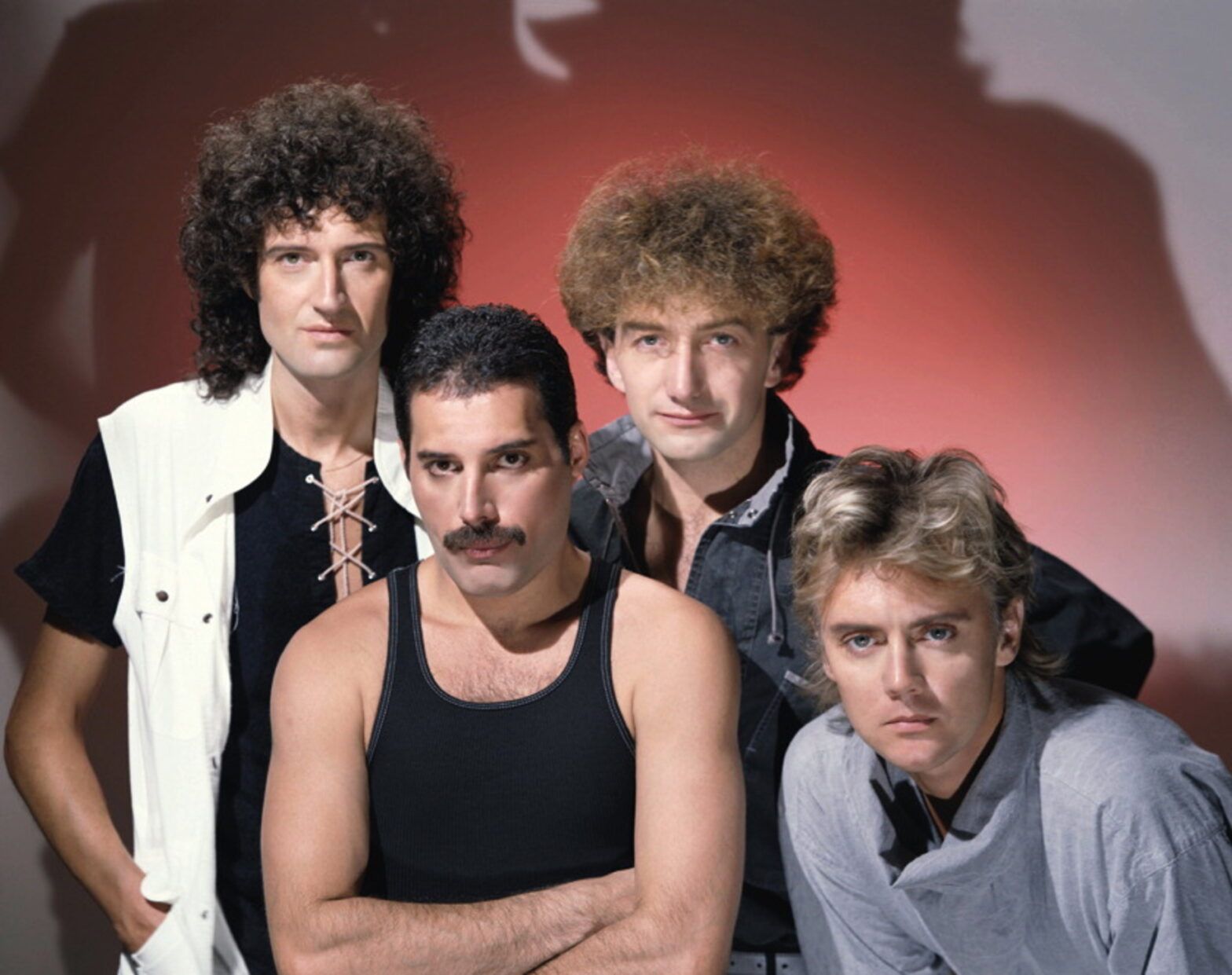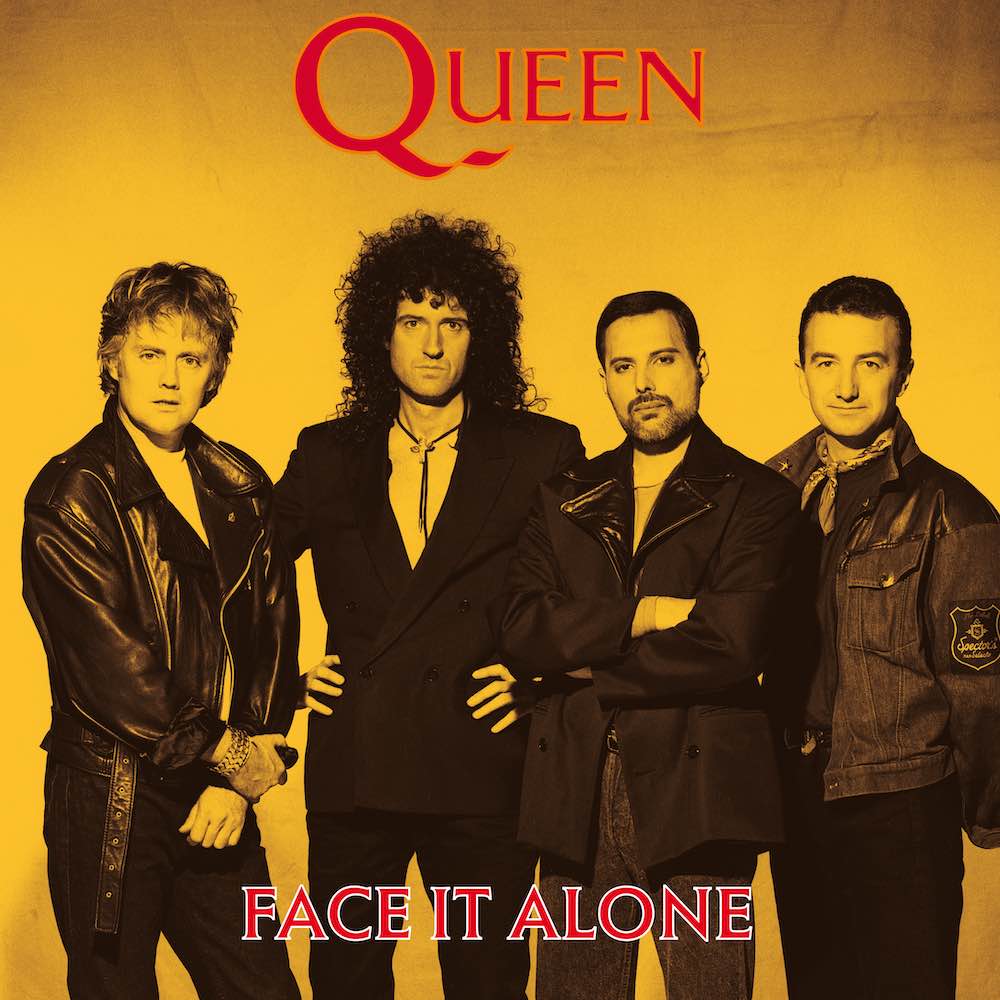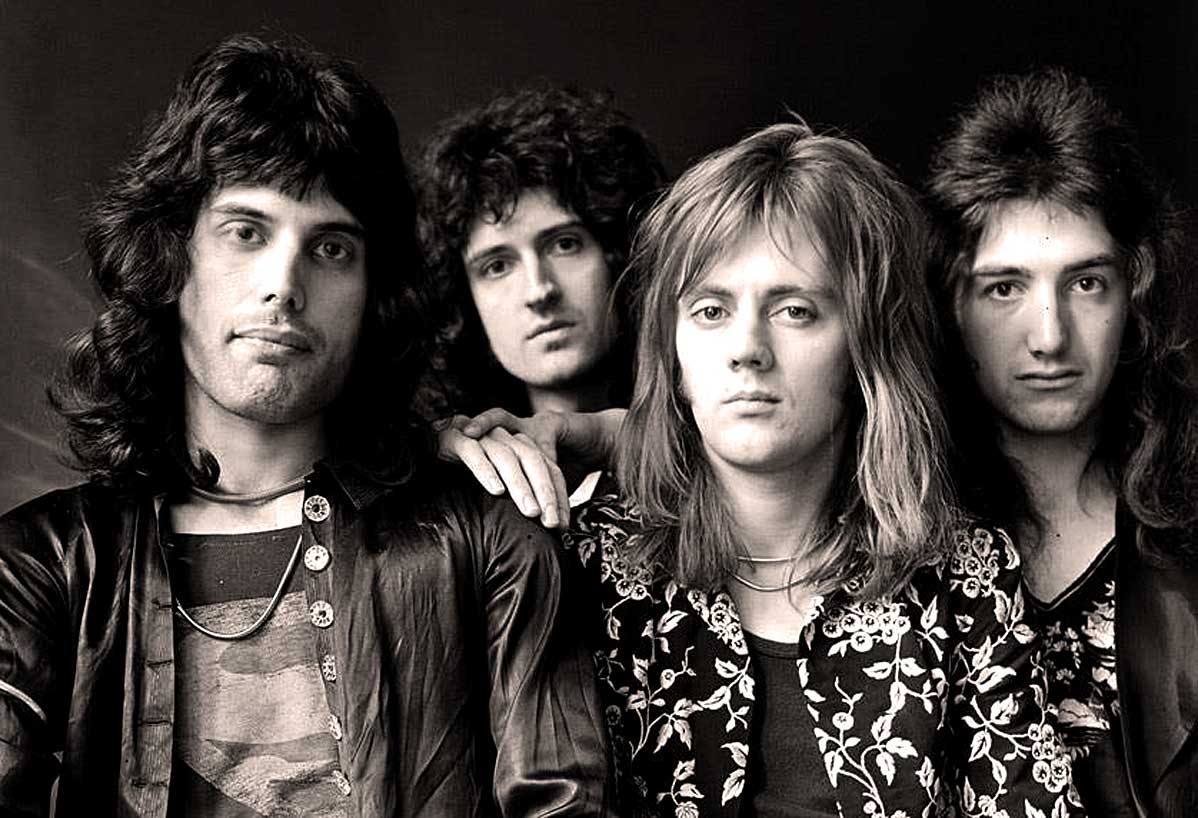Have you ever felt that electrifying surge when a song just grabs your soul? That, you know, undeniable force that makes you want to sing along, maybe even stomp your feet a little? Well, for many, that feeling comes from the legendary band Queen. It’s a powerful connection, a sort of, very deep resonance that transcends time. This unique energy, this captivating spirit, is what some might call the "queen roage" – a vibrant, rather, incredible presence that shaped music history forever. It's almost like a living, breathing thing, this sound they created.
We're talking about a group that didn't just play music; they lived it. Their sound, their performances, their very existence seemed to roar with an unmatched intensity. From the moment they stepped onto the scene, it was clear something special was happening. This "queen roage" wasn't just about loud guitars or big drums; it was about a voice that could reach the heavens, a stage presence that filled stadiums, and songs that told stories, honestly, in ways no one else could.
So, what exactly is this "queen roage" that we feel so strongly? It’s arguably the heart of their lasting appeal, the reason why new generations keep discovering their music. It's the reason why, for example, a test pressing of 'Bohemian Rhapsody' from 1975 is still, basically, a highly sought-after item, even now in 2025. It's the sheer, undeniable impact of a band that truly, you know, changed the game. Let's explore what makes this "queen roage" so special.
Table of Contents
- The Band That Roared: A Brief History
- The Architects of the 'Queen Roage'
- The Sound of the 'Roage': Iconic Music
- Live Performances: The Heartbeat of the 'Queen Roage'
- Why the 'Queen Roage' Endures
- Frequently Asked Questions About the 'Queen Roage'
The Band That Roared: A Brief History
The story of Queen, and by extension, the "queen roage," really begins in 1970. This was when the group came together, a few passionate musicians ready to make some noise. It wasn't long before their talent caught the eye of record labels. By 1973, they had secured their first recording contract with EMI. That same year, their debut album, simply titled 'Queen,' hit the shelves. It was a rather, significant moment, signaling the arrival of something different.
The official Queen website reminds us that their first major UK tour also happened in 1973, and continued into 1974. This was a time when rock 'n' roll, you know, was truly taking on the world. Queen was right there, in the thick of it, contributing their unique sound to the global music scene. Their debut album itself was crafted with care in London between 1971 and 1972. They worked in some famous spots, like Trident Studios and De Lane Lea Studios, carefully shaping their early sound.
It's interesting to note that nearly all the tracks on that first album were produced by the band themselves, alongside Roy Baker and the team at Trident's. This hands-on approach, you know, was a very early sign of their artistic control and vision. It showed they had a clear idea of what they wanted the "queen roage" to sound like, even in those initial stages. This early work laid the foundation for the massive success and the distinctive sound that would define them for decades to come.
The group's beginnings in London, a bustling city of music and creativity, certainly played a part in shaping their sound. They formed in a place where musical innovation was always in the air, which helped them, you know, find their own path. This foundational period, marked by their first album and tours, was when the "queen roage" started to truly take shape, growing from a spark into something much bigger. It was a crucial time for them, setting the stage for everything that followed.
The Architects of the 'Queen Roage'
The "queen roage" wouldn't exist without the incredible individuals who formed the band. We're talking about four distinct personalities, each bringing something absolutely vital to the mix. There was Freddie Mercury, of course, the lead singer. Then Brian May on guitar, Roger Taylor on drums, and John Deacon on bass. Each one was a master of their craft, and together, they created a chemistry that was, frankly, unmatched. It was their combined talents that fueled this incredible sound.
By the time their first album was out, Freddie Mercury’s unique gifts were becoming very clear. He had a voice with a truly remarkable range, able to hit notes that seemed impossible, and then some. But it wasn't just his voice; it was his stage presence. Freddie had this colorful, almost unpredictable way of performing. He could command an audience, making them feel every word, every note. This charisma was a huge part of the "queen roage," drawing people in and holding them captive.
Brian May's guitar work was another cornerstone. His distinctive sound, often described as orchestral or layered, added so much texture and depth to their music. Roger Taylor's drumming provided the powerful, driving rhythm, a kind of heartbeat for their songs. And John Deacon’s bass lines, often simple yet incredibly effective, gave their music a solid foundation. You know, it was a collective effort, with each member contributing their own special something to the overall sound.
It's interesting to consider how these four very different musicians came together to create such a cohesive and powerful sound. Their individual strengths, when combined, created something greater than the sum of its parts. This collaborative spirit was, in a way, what allowed the "queen roage" to develop into such a complex and multifaceted phenomenon. They weren't just playing instruments; they were weaving a sonic tapestry, if you will, that truly resonated with people.
Personal Details and Bio Data
To truly appreciate the "queen roage," it helps to know a little about the people behind it. These are the individuals who poured their hearts and souls into creating this lasting legacy. Here’s a quick look at the main members who shaped the band Queen:
| Name | Role | Birth Date | Key Contribution to Queen |
| Freddie Mercury | Lead Vocalist | September 5, 1946 | Unmatched vocal range, dynamic stage presence, songwriting (e.g., 'Bohemian Rhapsody', 'Killer Queen') |
| Brian May | Guitarist | July 19, 1947 | Distinctive guitar sound, songwriting (e.g., 'We Will Rock You', 'Fat Bottomed Girls') |
| Roger Taylor | Drummer | July 26, 1949 | Powerful drumming, backing vocals, songwriting (e.g., 'Radio Ga Ga', 'A Kind of Magic') |
| John Deacon | Bassist | August 19, 1951 | Solid bass lines, songwriting (e.g., 'Another One Bites the Dust', 'I Want to Break Free'), retired in 1997 |
These details, you know, just give a glimpse into the people who were the very core of Queen. Their individual journeys and talents converged to create something truly special, something that continues to impact listeners worldwide. John Deacon, for instance, retired from the band in 1997, but his contributions are still a huge part of the "queen roage."
The Sound of the 'Roage': Iconic Music
When we talk about the "queen roage," we're really talking about the music itself. Queen created a catalog of songs that are, quite honestly, instantly recognizable and deeply loved. Take 'We Will Rock You,' for instance. The lyrics, both in English and Chinese, speak of a spirit that won't be defeated, a kind of fearless drive. It's a song that starts with that famous stomp-stomp-clap rhythm, a sound that, you know, gets everyone involved. It’s all about being brave and moving forward, no matter what.
The song 'Killer Queen' is another brilliant example of the "queen roage" in action. The lyrics paint a picture of a sophisticated, perhaps a bit mischievous, character. She keeps "Moët et Chandon in her pretty cabinet," and she says things like, you know, "Let them eat cake," just like Marie Antoinette. This song shows off Queen's ability to tell a story, to create a vivid scene with their words and music. It’s playful, yet very clever, and it highlights Freddie’s vocal dexterity and the band's tight arrangements.
The sheer variety in their music is a testament to the "queen roage." They could go from the hard-hitting anthems to the more theatrical, almost operatic pieces, and then to the catchy pop-rock tunes, sometimes all within the same album. This willingness to experiment, to push boundaries, was a hallmark of their creative process. They weren't afraid to try new things, to mix different styles, and that's why their music still feels so fresh and relevant today. It's truly a diverse collection.
And let's not forget 'Bohemian Rhapsody.' This song is, arguably, a masterpiece, a sprawling epic that defies easy categorization. The official Queen website even mentions that an original test pressing of this song from 1975 is being auctioned for the Brit Trust in June 2025. This shows the lasting value and cultural significance of their work. 'Bohemian Rhapsody' encapsulates the very essence of the "queen roage" – it's bold, innovative, and deeply emotional. It’s a song that, you know, still captivates listeners around the globe.
Live Performances: The Heartbeat of the 'Queen Roage'
While their studio recordings are legendary, the "queen roage" truly came alive on stage. Queen's live performances were, in a way, an experience unlike any other. They weren't just concerts; they were events. Freddie Mercury, especially, had this uncanny ability to connect with every single person in the audience, whether it was a small club or a massive stadium. His energy was infectious, his movements mesmerizing, and his voice, well, it was simply extraordinary.
The band knew how to put on a show. They understood that a live performance was about more than just playing the songs; it was about creating a shared moment, a collective feeling. The audience was always a part of the show, clapping along to 'We Will Rock You,' singing every word of 'Bohemian Rhapsody.' This interaction, this back-and-forth energy, was a vital component of the "queen roage." It was a two-way street, you know, a very dynamic exchange between the band and their fans.
Many people who saw Queen live talk about the sheer power and presence of the band. It was a visual spectacle, but more importantly, it was an emotional one. Freddie, with his incredible range and stage presence, could make you laugh, cry, and cheer, sometimes all within the same song. This ability to evoke such strong feelings, to create such a powerful atmosphere, is what made their live shows so memorable. It was the "queen roage" at its most raw and magnificent.
Even years later, the stories and recordings of their live shows continue to inspire awe. The way they filled Wembley Stadium, for instance, with their sound and their presence, is still talked about today. It shows how deeply they understood the art of performance. The "queen roage" wasn't just a sound; it was a feeling, a collective roar that echoed through concert halls and arenas, leaving an indelible mark on everyone who witnessed it. It was, arguably, their true calling.
Why the 'Queen Roage' Endures
So, why does the "queen roage" continue to resonate so strongly, even decades after the band's formation? Part of it is the timeless quality of their music. Their songs, you know, just don't seem to age. They tackle universal themes of struggle, triumph, love, and identity in ways that still feel fresh and relevant. The melodies are catchy, the lyrics are thoughtful, and the performances are simply electrifying. It's a combination that's hard to beat.
There's also the sheer quality of their musicianship. Each member was incredibly talented, and their collective skill created a sound that was both complex and accessible. They weren't afraid to experiment with different genres, blending rock, opera, pop, and even, you know, a bit of vaudeville into their unique style. This willingness to push boundaries kept their music exciting and unpredictable, which is a big part of their lasting appeal.
The emotional connection that fans have with Queen is another key factor. The "queen roage" isn't just about technical brilliance; it's about heart. Freddie Mercury, in particular, poured so much emotion into his performances, making every song feel deeply personal. This authenticity, this raw vulnerability, created a bond with listeners that few other bands have achieved. People feel like they know Queen, like the music truly speaks to them.
And let's not forget the enduring legacy. New generations are constantly discovering Queen's music, whether through films, commercials, or just, you know, hearing a song on the radio. The official Queen website, copyright 2025, continues to be a hub for fans, showing that the band's presence is still very much alive. The "queen roage" is a phenomenon that keeps growing, passed down from one generation to the next, proving that true artistry truly stands the test of time. Learn more about Queen's Story on their official site.
Some people, you know, might wonder why Queen receives so much praise, especially when considering sales or musical contributions compared to other bands. They might say Queen can't be in the top five. But the "queen roage" isn't just about numbers. It’s about the feeling, the impact, the sheer joy and power their music brings. It’s about a band that dared to be different, and in doing so, created something truly extraordinary that continues to inspire millions. It's a rather unique kind of magic, if you think about it.
Frequently Asked Questions About the 'Queen Roage'
People often have questions about Queen's impact and their unique appeal. Here are a few common thoughts, you know, that come up:
What makes Queen's live performances so legendary?
Queen's live performances were legendary because of Freddie Mercury's incredible stage presence and vocal power. He could connect with every person in the audience, making them feel like part of the show. The band's tight musicianship and their ability to create a massive, engaging spectacle also contributed greatly. They truly understood how to deliver a show that was, you know, unforgettable.
How did Queen's debut album set the stage for their future success?
Queen's debut album, released in 1973, showed early signs of their unique sound and ambition. It featured the band's distinct harmonies and Brian May's guitar work. Recording in studios like Trident and De Lane Lea between 1971 and 1972, they laid down the groundwork for their complex arrangements. It was, in a way, a very clear statement of intent, hinting at the greatness that was to come.
What is the lasting impact of Queen's music on popular culture?
The lasting impact of Queen's music is immense. Their songs are still widely played, used in films, and covered by artists across many genres. They created anthems that unite people, and their unique blend of rock, pop, and theatricality continues to influence musicians today. The "queen roage" lives on, a testament to their enduring creativity and the universal appeal of their sound. You can learn more about The Queen Roage Legacy on this very page.
The "queen roage" is, quite simply, an enduring force. It's the spirit of a band that defied categories, created unforgettable music, and connected with millions on a deeply emotional level. Their legacy continues to grow, inspiring new fans every day. It's a rather powerful thing, this roar, and it shows no sign of fading.



